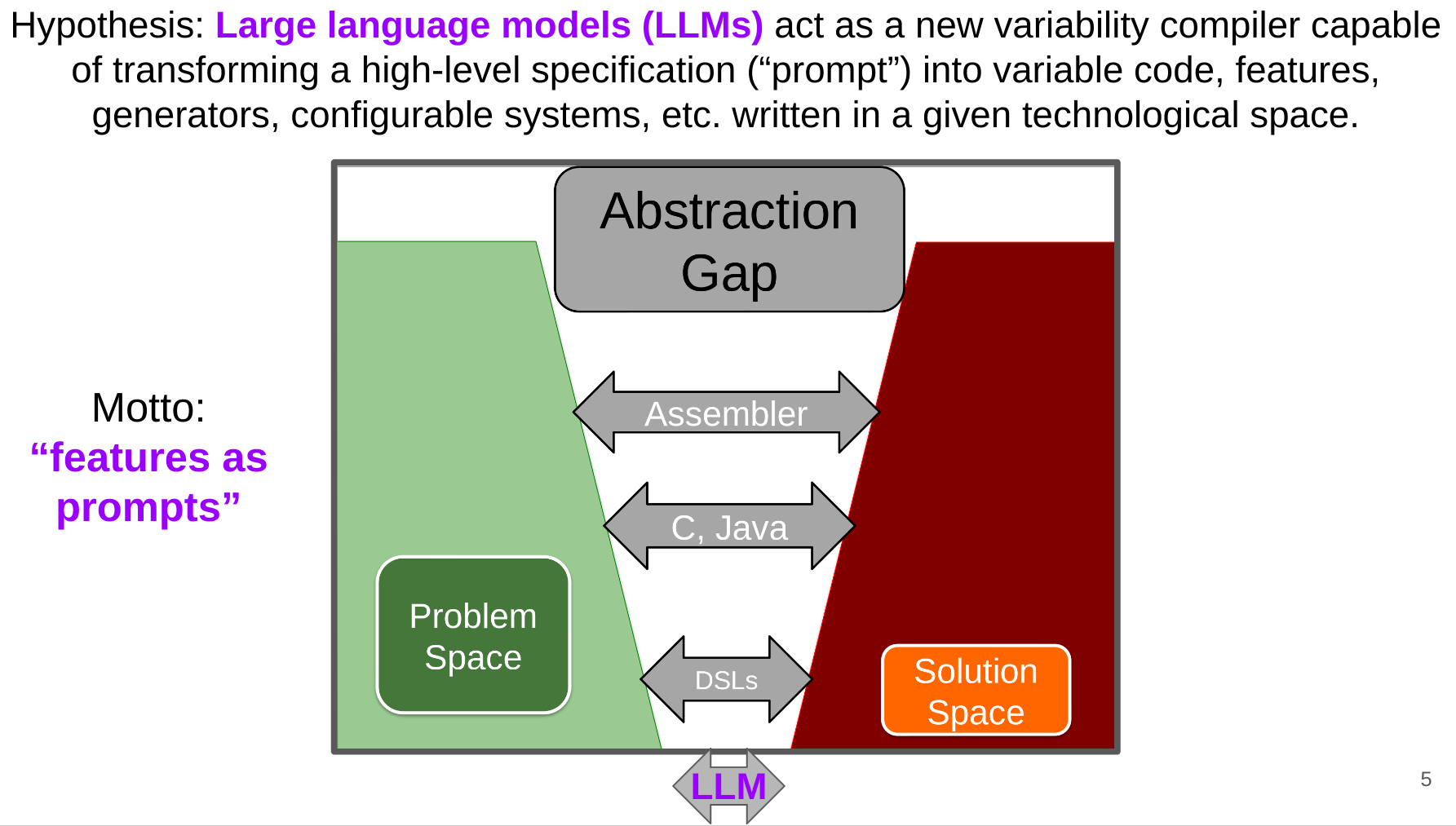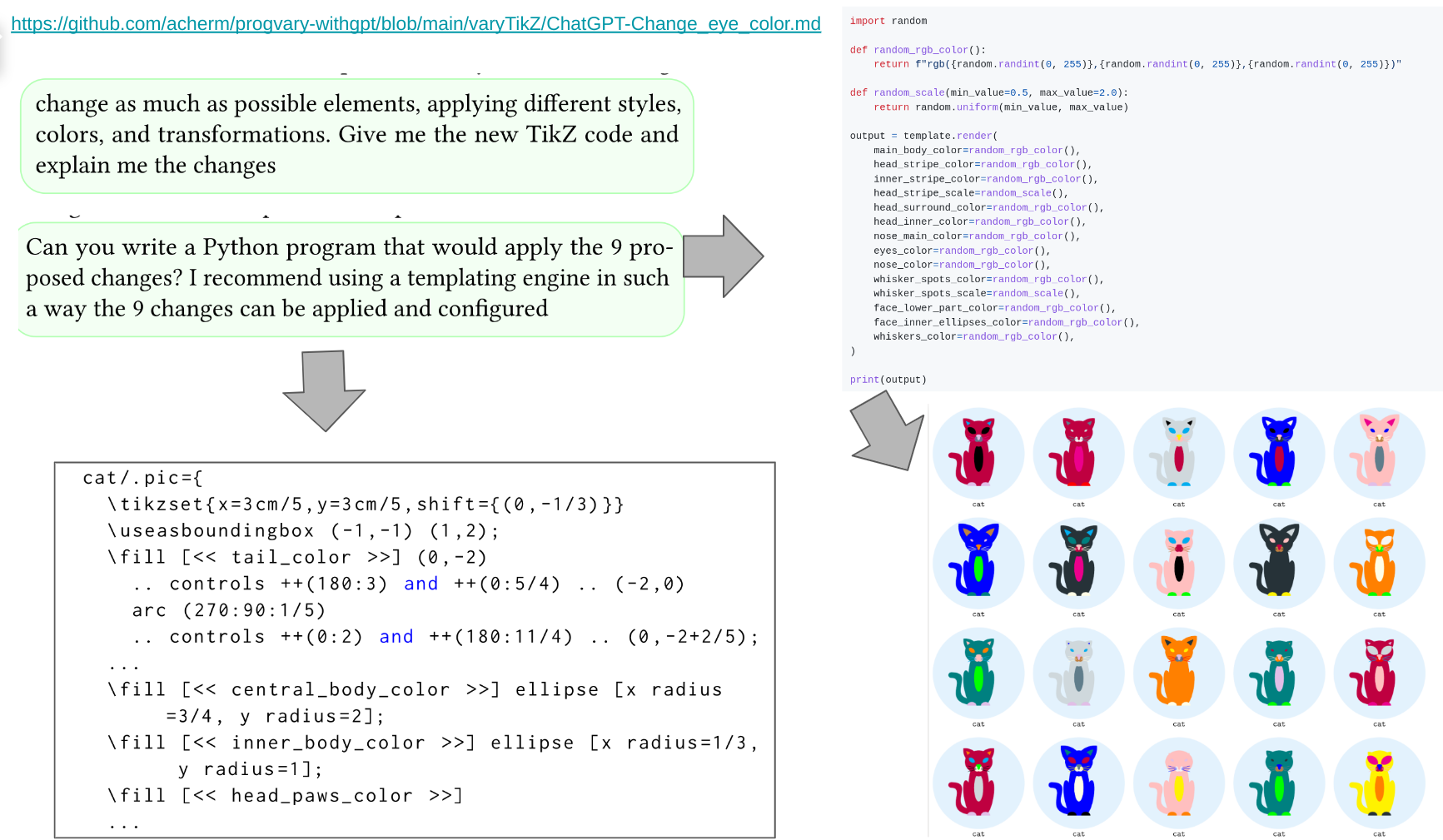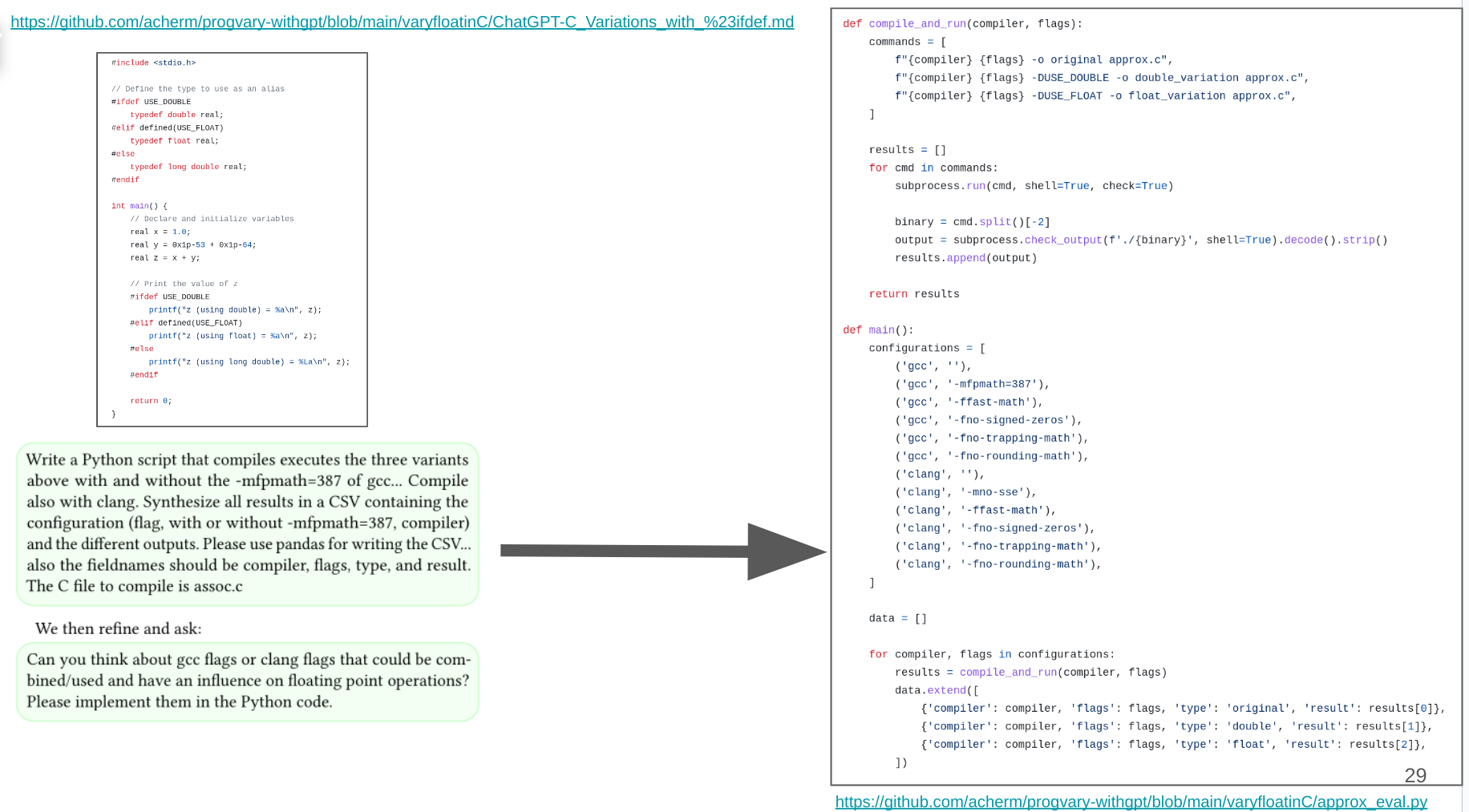ChatGPT for Programming Variability and Variants
I presented at 27th ACM International Systems and Software Product Line Conference (SPLC 2023) the paper “On Programming Variability with Large Language Model-based Assistant” joint work with José A. Galindo and Jean-Marc Jézéquel. In short how LLMs and ChatGPT can be concretely and originally used for programming software variability and variants. I first showed how ChatGPT can assist developers in implementing variability in different programming languages (C, Rust, Java, TikZ, etc.) and mechanisms (conditional compilation, feature toggles, command-line parameters, template, etc.). With “features as prompts”, there is hope to raise the level of abstraction, increase automation, and bring more flexibility when synthesizing and exploring software variants. In a sense, generative AI meets generative programming.

I then demonstrated how to transform an unfamiliar code (written in TikZ, and without comments) into something variable and configurable. A fun session with a fixed cat written in TikZ that is gradually made configurable.

Sadly, I haven’t the time to present how to program variability in the context of reproducibility and floating-points. With a few prompts, you can vary types of a variable, make vary flags of a compiler (eg gcc or clang), and synthesize a generator that compiles and executes all variants, while storing all results in a CSV. /VariantsAndLLM/

More details in the paper or in the appendix of slides or in the Github:
- Preprint: https://inria.hal.science/hal-04153310/
- Slides: https://slideshare.net/acher/on-programming-variability-with-large-language-modelbased-assistant
- Git: https://github.com/acherm/progvary-withgpt/
These are early results, and there are many open challenges and questions. I got great feedbacks and suggestions in the reviews or at the conference. This paper differs from the other I presented about reengineering variants: here we didn’t start with variants in the first place, we aim to program and create them! I am very excited by this research direction, i.e, how ChatGPT and LLM-based assistant can help exploring variants’ space with software!
Abstract:
Programming variability is central to the design and implementation of software systems that can adapt to a variety of contexts and requirements, providing increased flexibility and customization. Managing the complexity that arises from having multiple features, variations, and possible configurations is known to be highly challenging for software developers. In this paper, we explore how large language model (LLM)-based assistants can support the programming of variability. We report on new approaches made possible with LLM-based assistants, like: features and variations can be implemented as prompts; augmentation of variability out of LLM-based domain knowledge; seamless implementation of variability in different kinds of artefacts, programming languages, and frameworks, at different binding times (compile-time or run-time). We are sharing our data (prompts, sessions, generated code, etc.) to support the assessment of the effectiveness and robustness of LLMs for variability-related tasks.
ChatGPT LLM generative AI variability programming 